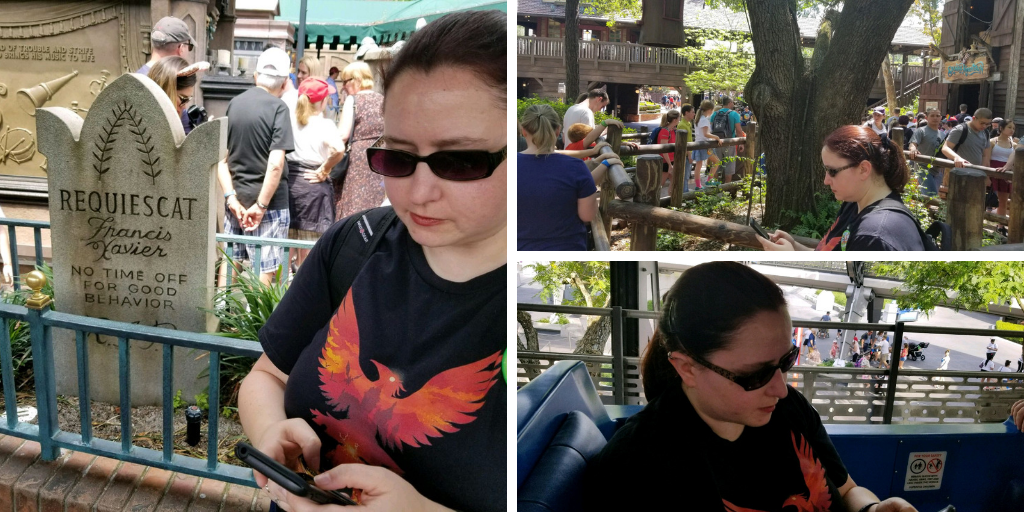The end of the year is a time for reflection. For writers, that reflection often includes taking assessment of how many things we published or finished, or maybe how much progress we made in a novel—or if you’re an industrious little tracker (like someone around here), how many words, hours, or pages you wrote over the year. Inevitably that reflection turns to the future and to setting writing goals.
Writing goals for the new year should be set on your previous goals, the progress you made, and what your priorities are now. Frequently I’ll look back on goals I made and realize I didn’t even remember setting those goals, which means I did nothing about them over the year. (And ultimately means they weren’t actually that important to me and I probably should have set different goals.)
Let’s talk about how to set better writing goals that support our long-term writing hopes and short-term realities.
Setting Realistic Writing Goals
Define Your Priorities & Reality

Photo by Markus Winkler on Unsplash
Before you start dreaming up writing goals, you need to decide what’s important to you. While that should include what’s important to you about your writing life, it should also consider everything else about your life.
If spending more time with your kids or learning how to knit has become an important part of your life, you need make time for it. Balance your writing goals against your other goals and priorities so everything fits together.
Your writing goals don’t always have to be about doing more. Sometimes making a writing goal to write for only 1 hour per week, or to write 100,000 words fewer than last year, or to write 1 novel instead of 3 is the right call. You’ll feel more successful when your goals match your reality, and you can check them off instead of continuing to shuffle them to next year.
Limit Your Goal List
One of the mistakes I’ve made in the past is trying to tackle too much at once. A list of writing goals that is ten items long has at least six things that will be forgotten or ignored. It’s too hard to focus when there are too many goals, and it’s too easy to forget what you’re not actively working on.
Three or four focused goals that meet your priorities and reality are more powerful than ten goals you wish you could achieve in a perfect world.
Subjective & Objective
Many writing goals are objective:
- Did you finish your novel?
- Did you write 200,000 words?
- Did you write every day?
Those goals all have an easy yes or no answer, and you can check your progress throughout the year and have a good idea if you’ll achieve your goal. (For example, if you need to write 100,000 words in October to meet your word count, you can probably assume you’re not going to make it.)
While it’s good to have a goal you can measure, in a creative life it can be demoralizing if you realize you won’t reach your goals. When you know your goals are out of reach, it can be harder to make any progress toward them, which defeats the whole purpose of writing goals!
Instead of basing all your goals around objective metrics, include some goals with a subjective component. These goals might include something about craft development, your mindset toward writing, or how you feel about your work in progress. What’s something you want to change about your writing life or process? What’s a goal you can set to put you on the path to the change?
Writing Goals
Taking this advice, here are my four writing goals for 2024.
- Write 200,000 words.
It’s me, you knew there would be a wholly objective word count goal. - Complete a novel draft.
The planning is complete, and the draft has started! If you want to follow this journey in detail, check out the Behind the Novel tier on Patreon. I’ll be talking all about my novel writing process (successes, frustrations, and failures) over the course of the year. - Clear more mental space for writing.
I’ve been working on getting my physical space more organized in an effort to declutter my mental space. I want a physical space that lets me drop my baggage and focus entirely on my work. While there are some objective elements to this goal, how much mental space is cleared is definitely a subjective assessment. - FOCUS.
If I do nothing else, I want to focus on what’s in front of me and not let other projects or ideas distract me—even if they’re really cool! (I do have some leniency for other projects that have been sitting on the burners, but the most time and focus over the year needs to be on the novel until it’s got a full draft!)
So, that’s what I’m working on next year. What are your writing goals for 2024?
For full access to The Write Life and more about what I’ve done to assist with my creative life, sign up on Patreon for $1 or more per month. You’ll also receive a personalized thank you in a future edition of The Write Life.



